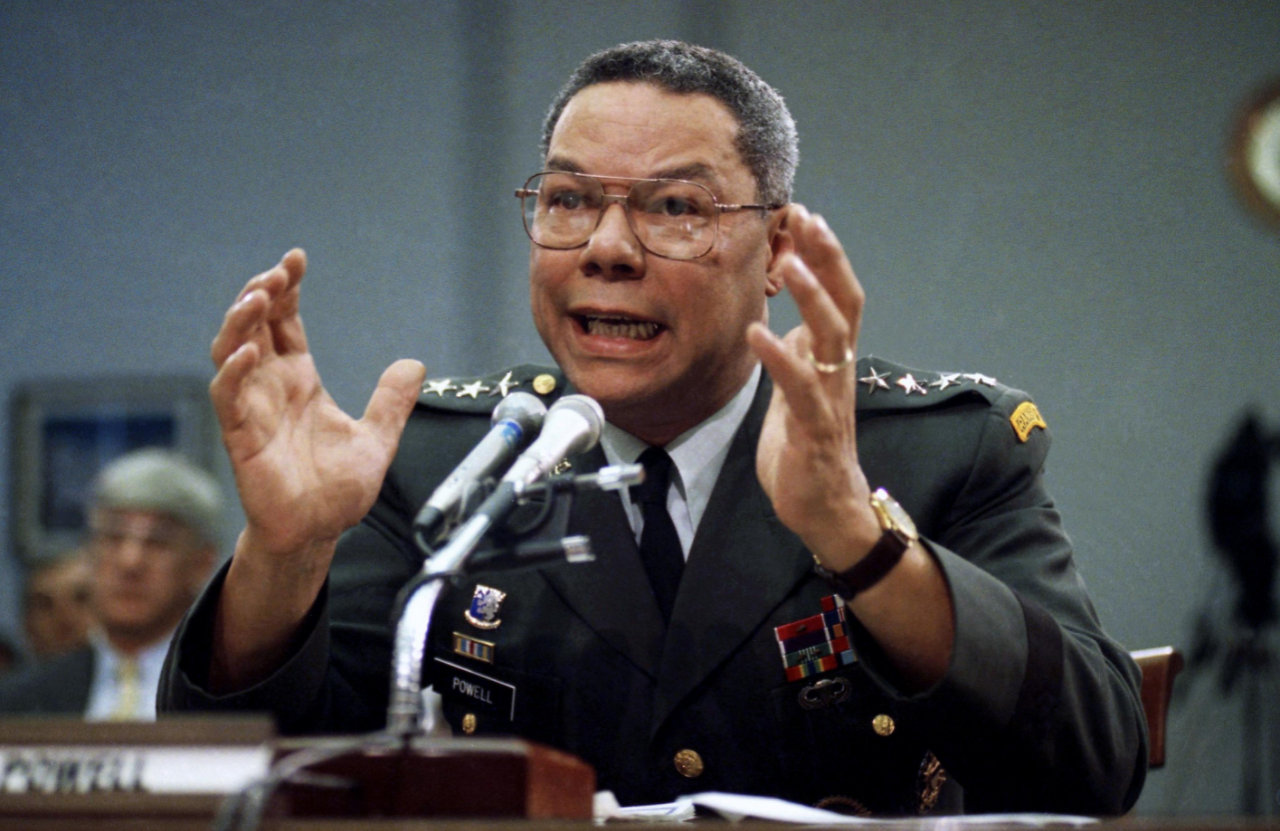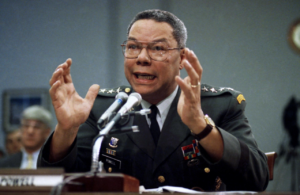Colin Powell’s Controversial Legacy

 by Matthew Kauffman ‘23
by Matthew Kauffman ‘23
Colin Powell, former Secretary of State to President George Bush, died on October 18 of COVID complications amid a battle with cancer. Powell shaped national security policy for years but is widely known for his unfounded claim to the United Nations of finding WMDs (weapons of mass destruction) in Iraq, leading the U.S to invade the country and eventually have Saddam Hussein overthrown and executed. Powell knew in the fallout from this claim that his legacy may be ruined by it and even predicted the first line of his obituary in the months and years following his testimony at the United Nations.
“Colin L. Powell, who in four decades of public life served as the nation’s top soldier, diplomat, and national security adviser, and whose speech at the United Nations in 2003 helped pave the way for the United States to go to war in Iraq, died on Monday,” wrote Eric Schmitt of the New York Times.
Powell was opposed to the Iraq War, which he considered unsustainable, but was persuaded by President Bush to win over the international community. During his speech to the United Nations, Powell described intelligence that accused Hussein of possessing nuclear, chemical, and biological weapons. These accusations, which were later proven to be utterly false, would lead the way for the invasion of Iraq.
Although Powell was blamed for the false intelligence, he claims to have “spent four days and nights at the CIA” where he received the same assurances as the President and Congress, he told Larry King in a CNN interview.
“I regret it now because the information was wrong, but I will always be seen as the one who made the case before the international community,” Powell said. Despite his regret after the testimony, many people still strongly resent Powell for turning the dials that led to the infamous Iraq War.
Powell also stated in his interview with King that six to eight months after invading Iraq and finding no traces of the weapons he described, the intelligence community still insisted that they existed and posed a real threat. Powell essentially became the scapegoat for a war he was not in support of, becoming the victim of unproven intelligence work that was used as the basis for a large-scale invasion of Iraq, which amounted to 460,000 direct or indirect casualties.
Following Powell’s death, former President Trump released a statement regarding Powell’s speech. “Wonderful to see Colin Powell, who made big mistakes on Iraq, and famously so-called weapons of mass destruction, be treated in death so beautifully by the fake news media.”
No one is denying Powell’s mistakes, which carried immense weight for Americans and Iraqis alike. But it is clear that he expressed profound regret over his speech, and knew that it would define his otherwise distinguished legacy. In light of his death, it would be more respectful and productive to focus on the trailblazing, acclaimed career of Powell, a man whose distinguished life was inspiring to many. He was the first African American Secretary of State and Chairman of the Joint Chiefs and was renowned for his role as a soldier in Vietnam. He was not an exceptional student, nor did he come from wealth, but rose to prominence through hard work and dignity, which is what should be remembered about his life and career.